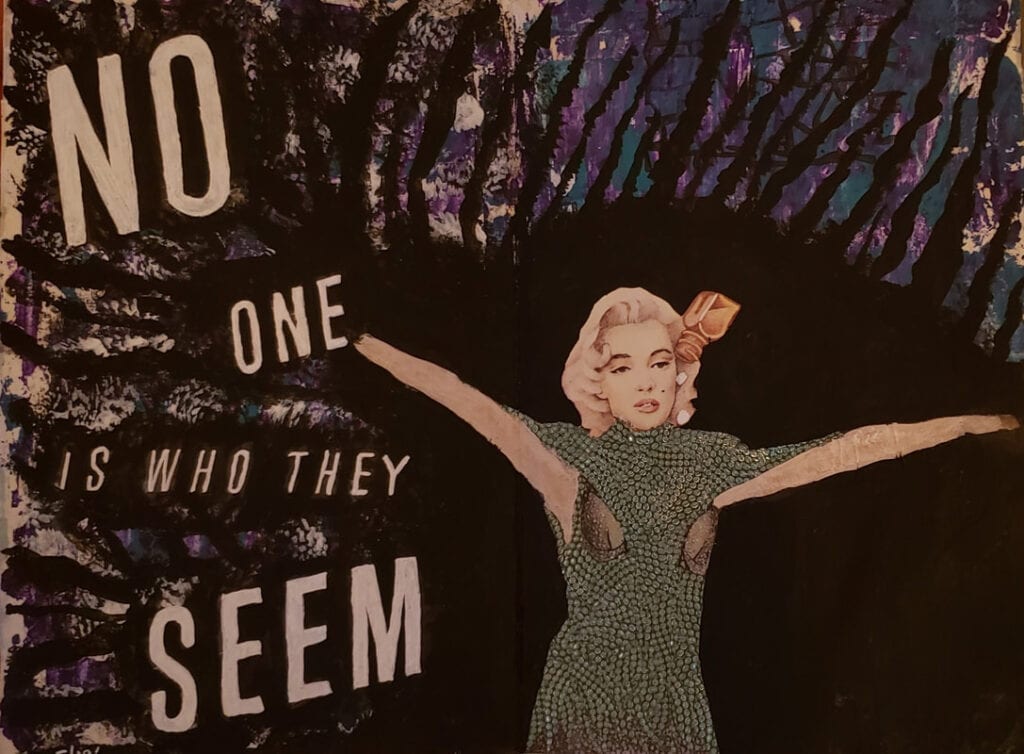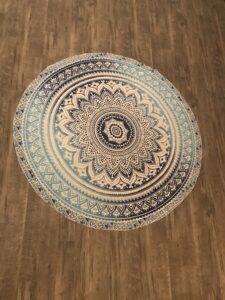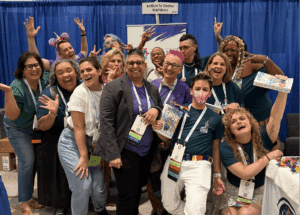There is something wrong with me. Legit. Something is off. I say this because I look around at my fellow therapists, counselors, helpers, healers, gurus, and gods/goddesses and feel alone. What I mean by alone is my intense level of sensitivity. I’m not talking about the sensitivity you’re applauded for such as being empathetic towards your clients or being intensely tapped into your own and other’s emotions. I’m talking about the kind of sensitivity that makes it hard to get out of bed, hard to put on clothes, hard to be in your body, hard to interact with other humans, and just plan hard to face the world; (and this has definitely become more apparent since the outbreak of the global pandemic).
Believe me, I know I don’t have the corner market on human suffering or pain. However, I’m constantly “sick” in one form or another. Be it headaches/chronic migraines that I’ve had since my early teens, teeth grinding, insomnia – which leads to constant fatigue -, kidney stones, various allergies, issues with my menstrual cycles, getting colds easily, severe neck and back pain due to muscle tension, the list goes on and on. And don’t even get me started with my mental health symptoms all wrapped up in a nice gift of depression, anxiety, and trauma.
Because of all of these mind-body shenanigans I end up having to cancel, move, or reschedule appointments both professionally and personally. I look like a flake, or even worse, irresponsible. Lazy. Unreliable. Attention-seeking. The constant apologizing, explaining, reframing, and clarifying makes me feel like I’m running a daily marathon that I will never win. I’m currently recalling a memory in which I was practicum-facilitating an in-person EMDR training right before COVID. During the training I was hit hard by a migraine and had to temporarily go lay down in one of the clinician’s dark offices – during part of a lecture – so I wouldn’t throw up. All of this in the middle of trying to work, be “professional”, and not leave my colleagues hanging. I felt and feel racked with guilt.
I’m ashamed to even admit that this is my experience. Furthermore, I’m supposed to have the answers and tools to solve this because I’m a therapist, right? Many times, I feel like I’m apologizing for existing. Much of the time, I afraid people will think that I’m lying. “You don’t look sick.” “But you’ve been so successful in your career, you must not be feeling that bad”. “Didn’t you just recently start a PhD program? If you were really that sick you couldn’t/shouldn’t be doing that.” Again, there is a lot of shame wrapped up in this put-together mask that I show the world. On the other hand, I also remind people that the author of Seabiscuit, Laura Hillenbrand, has Chronic Fatigue Syndrome yet she wrote a highly acclaimed novel while being unable to leave her house or her bed. It’s as if I have to prove over and over again not only how sick I am, but how hard I try to be well and be successful. Whatever successful means. Its subjective.
The problem with all of this is I can’t just stop my life. I mean I could, but I’m actively choosing not to do so. As all of us know, we have responsibilities. Or, in the words of the author and singer-songwriter, Jewel, “there are addictions to feed and there are mouths to pay.” I’m sure the next thing people are thinking is, “why don’t you go to the doctor, why don’t you change your diet, why don’t you pray-meditate-yoga more, why don’t you work on widening your window of tolerance…etc.” Here’s the thing, toxic positivity and our culture’s “fix it – pull yourself up by your bootstraps” mentality makes me even more exhausted. “My cousin’s uncle twice removed had all the same things that you have. He just drank green juice and got outdoors. He is healthy as an ox.” I’m literally face-palming right now.
The problem is, I do all the things I’m “supposed” to do. Here a short list of what those things entail:

Unfortunately, all this self-care can be poisonous. “Self-care is fetishized and has become Instagrammable.” “People think there are checkboxes to tick, standards to upkeep, and yet they don’t understand why they do what they do.” “If you find yourself obsessing over the ‘correct way’ to self-care, and feel like crap consistently after it, then it’s a big sign to stop,” she adds. We can even search our social media to see what other people are doing to care for themselves — the hashtags are plentiful” (Phar, 2019). Talk about a perfect way to crush yourself with expectations!
After all this set up and background, let me level with you. Over the years, I’ve come to realize that I’m what is known as a Highly Sensitive Person (HSP). As a side note, I’m not a spokesperson for all HSPs; only my personal experiences. I’m sure many of you have heard about HSPs and are aware of Dr. Elaine Aron’s book called The Highly Sensitive Person. I’m also sure many of you have HSP traits or are HSPs yourself. It’s well known that highly empathic and sensitive people are drawn to the helping professions. Looking specifically at HSPs, some of these traits include: people’s moods affect me, I am easily overwhelmed by things like bright lights/strong smells/coarse fabrics/loud noises, I startle easily, I have a rich complex inner life, and I find myself needing to withdraw during busy days into bed or into a darkened room or any place where I can have some privacy and relief from stimulation (Aron, 1998). Those are just a snapshot of a few of the possible “symptoms.” To get the full picture, feel free to read Dr. Aron’s book. It really is fascinating regardless if you yourself are an HSP. I wager to say that some of your clients are.
So, whether you are an HSP, have traits, or are in neither of those categories (aka any human reading this), here are some things that you can do to help.
- Don’t fall into the trap of “fix it” or give multiple suggestions for health and healing. You can say something as simple as “that must be really tough for you, what can I do to support you?” This is true even if you yourself are an HSP. Everyone has different experiences that might not align with yours.
- Please know that we truly feel horrible and are usually crushed with anxiety and disappointment when we have to cancel. We aren’t doing it on purpose, we promise.
- We aren’t being flaky, lazy, sloth-like, or exhausted deliberately. We get frustrated by it too. Refer to the previous bullet point.
- Please be patient with us. We honor and deeply value our friendship or relationship with you. At times we are terrified of losing you and sometimes we feel like we deserve to be abandoned. Please don’t leave. You’re actually helping to keep us together emotionally, physically, mentally, and spiritually. (*With the obvious caveat that this does not apply to abusive or unhealthy relationships.)
- If you’re an employer, please don’t fire us. We have legitimate medical conditions going on in addition to being highly sensitive. Work with us. We are more than happy to provide you with medical excuses, doctor’s letters, requests for accommodations, and whatever else you may need. We survive financially because of you.
The other thing you can do to help is be willing to tell your story just as I’ve told mine. I’m not only limiting this to HSPs. I’m talking about any struggle that you are having. Your physical health, mental/emotional health, trauma, relationship difficulties, a loss, anything. Not only tell your story to your friends and family, but to “safe-enough” colleagues and others. Shame is a powerful emotion that can and will keep us silent. This can be a very lonely and isolating experience. I, and others, need to know that we truly aren’t alone.
As far as “working with” this HSP thing, I am still trying to figure out how to care for myself not only in a reactive manner, but a preventative manner. Just now, I’m snuggling up to Dr. Ted Zeff’s Highly Sensitive Person’s Survival Guide and I also have Dr. Elaine Aron’s HSP Workbook. I’m definitely not “there” yet with figuring me out, not even close. However, I’m trying. I really am trying. All I can say is I’m doing the best I can. I bet you are too.
Pahr, K. (April 18th, 2019) For Many People with Anxiety, Self-Care Just Doesn’t Work. Blog. Healthline. https://www.healthline.com/health/mental-health/self-care-is-hard#1
Jewel, https://www.azlyrics.com/lyrics/jewel/whowillsaveyoursoul.html





2 Responses
Love the vulnerability and transparency of your work. Thank you for sharing this blog entry. Very well done. How brave and real and alive you are to share your life. While I so wish you could be an HSP without the physical suffering I understand at times they go together. Thank you that you are here. And you are accepted with all of what is true! Truly. You are right. Your contribution to the world (like Hillenbrand) is more significant than any schedule change, rest from a migraine, etc.
Rachel, you may be a HSP, but youre also a rock star. Thanks for your honesty and courage. I hope your feel better from today’s afflictions very soon.